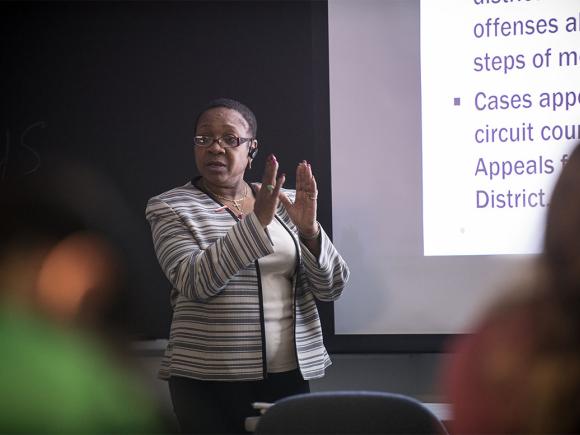
The Law Enforcement and Homeland Security Concentration offers Criminal Justice majors a deep dive into the pressing issues and challenges in modern law enforcement and national security. This concentration is ideal for students aiming for careers in law enforcement or those interested in the critical balance between public safety and individual rights. With a curriculum focused on contemporary problems, criminal investigations, and the evolution of American law enforcement, this program equips students with the expertise needed to navigate and address complex issues in the field. Open to all Criminal Justice majors, this concentration prepares graduates for impactful roles in safeguarding communities while upholding justice and civil liberties.






